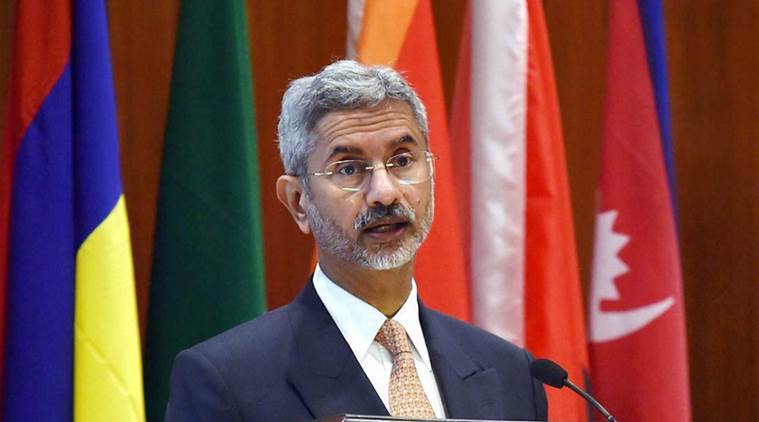Written by Sushant Singh
 Former foreign secretary S Jaishankar Wednesday said India had spoken to Pakistan during his tenure because the “whole world would keep coming at us” to talk to that country. He said now the message that has gone through “is that if Pakistan behaves well, India’s hand is extended”. Jaishankar, who retired in January, said this while answering questions after delivering the Jasjit Singh Memorial Lecture on National Security. “The whole world would keep coming at us that talk to Pakistan… there are risks, you are the bigger neighbour and so on. Till my time in the US as an Ambassador, and I am sure that was the case with the UK as well, they would keep coming and say, do more on that account,” he said, explaining the reasons for Prime Minister Narendra Modi landing suddenly in Lahore, and allowing a Pakistani intelligence team to Pathankot Air Force station after a terror attack, while the bilateral relations deteriorated thereafter.
Former foreign secretary S Jaishankar Wednesday said India had spoken to Pakistan during his tenure because the “whole world would keep coming at us” to talk to that country. He said now the message that has gone through “is that if Pakistan behaves well, India’s hand is extended”. Jaishankar, who retired in January, said this while answering questions after delivering the Jasjit Singh Memorial Lecture on National Security. “The whole world would keep coming at us that talk to Pakistan… there are risks, you are the bigger neighbour and so on. Till my time in the US as an Ambassador, and I am sure that was the case with the UK as well, they would keep coming and say, do more on that account,” he said, explaining the reasons for Prime Minister Narendra Modi landing suddenly in Lahore, and allowing a Pakistani intelligence team to Pathankot Air Force station after a terror attack, while the bilateral relations deteriorated thereafter.
“Today, one feeling is that if Pakistan behaves well, India’s hand is extended. That message has gone through. Ripples of it internationally have been much to our advantage,” he said, supporting the rationale for sporadic engagement with Pakistan, starting from an invite to then Pakistan PM Nawaz Sharif for Modi’s swearing-in ceremony in May 2014.
In response to another question, he said the government did not politicise either the surgical strikes against Pakistan or the military stand-off with China at Doklam plateau. “Look at Doklam. Certain things were happening on the border which had national security implications. Politics was also happening. In a working democracy, it is hard to separate the two,” he said, adding that “the initiative (to reach out to all political parties) came from the government” which led to the opposition leaders being briefed by him and other officials.
Answering a question about diplomacy when the US is ruled by President Donald Trump, Jaishankar said that “if we apply the filter of Indian interests, we have come out quite well,” citing examples of Trump’s policy on Af-Pak and the Asia-Pacific.
He said the delay in execution of Indian projects in foreign countries have been due to reasons which are not understood properly. “When we look at projects, often the conceptualisation of projects had been flawed. If you look at where our projects haven’t done well, these are hardworking environments. Myanmar is a very difficult working environment.”
“In the case of Chabahar, I know we always like to beat up on ourselves. But to be very honest a lot of the problems were because the Iranians kept changing the terms of the agreement…,” he said.
For all the latest India News, download Indian Express App
No comments:
Post a Comment